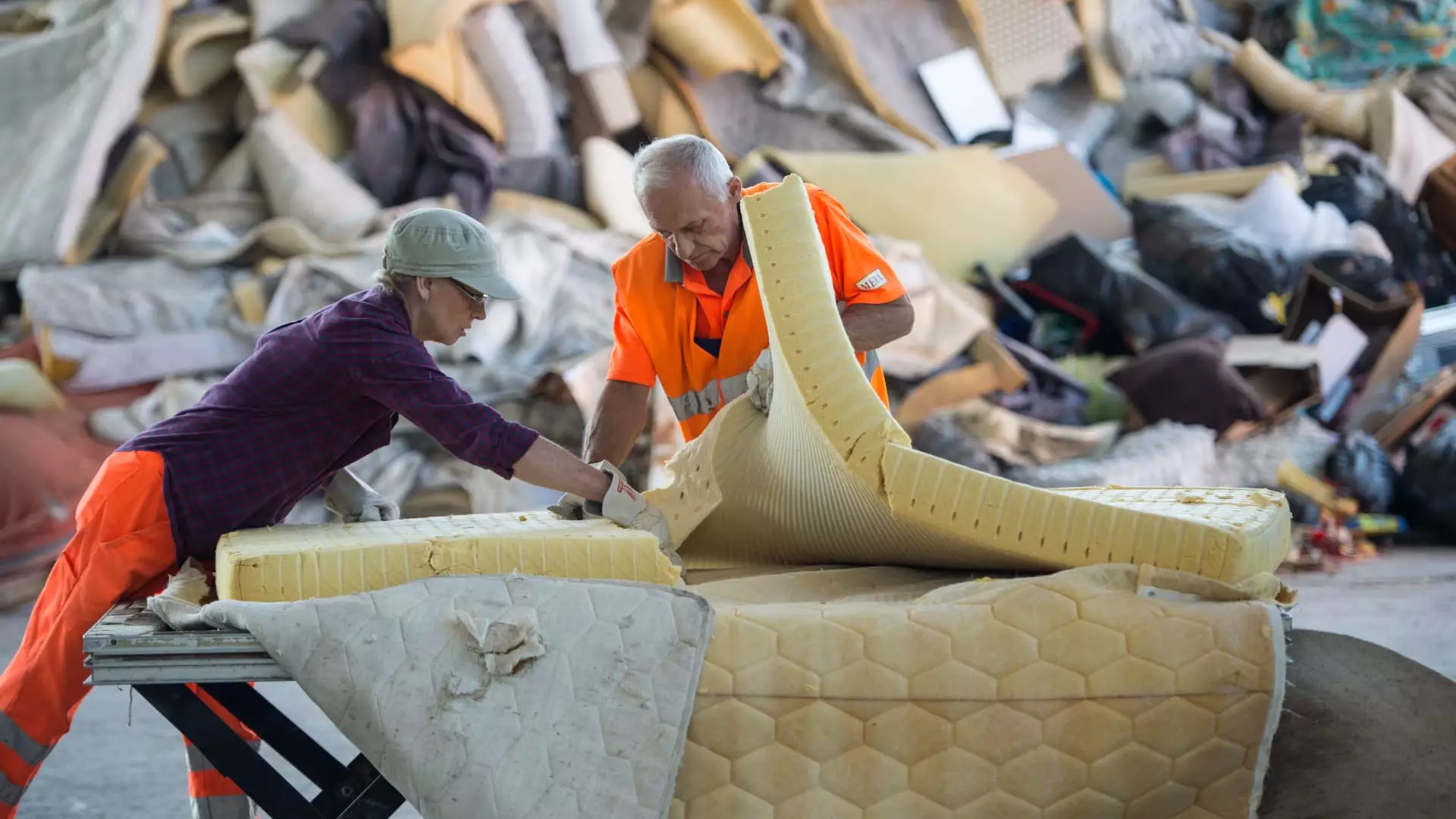As the urgency for environmental conservation escalates, various industries are exploring sustainable practices, and the mattress industry is no exception. In recent years, several states have pioneered initiatives to address the environmental impact caused by the disposal of mattresses. The case of California, Connecticut, Oregon, and Rhode Island illustrates a thoughtful policy shift aimed at fostering a circular economy. Each of these states now imposes a recycling fee on every mattress and box spring sold, with amounts typically falling between $16 and $23. This development could pave the way for additional states to implement similar strategies, aiming to curb the estimated 15 to 20 million mattresses tossed each year in the U.S.
The Role of the Mattress Recycling Council
At the heart of these initiatives is the Mattress Recycling Council (MRC), a nonprofit organization established by the bedding industry to facilitate recycling efforts. According to MRC statistics, a staggering number of mattresses are discarded daily—a figure that amounts to around 50,000. The good news, as the MRC highlights, is that more than 75% of a mattress can be recycled. This material includes wood, steel, foams, and fibers, which can be reclaimed and repurposed, thus reducing the pressure on landfills.
Each participating state has devised its own method for implementing these recycling fees. For instance, Oregon introduced a flat fee of $22.50 for new mattress purchases as of January 1. This fee, termed a “stewardship assessment,” aims to facilitate the establishment of accessible recycling services across the state. Meanwhile, California, Connecticut, and Rhode Island have adjusted their respective fees in response to evolving program costs and demands, promoting higher financial contributions from consumers to sustain these initiatives.
Interestingly, while these states lead the initiative, other regions may soon follow suit. The Mattress Recycling Council is reportedly in discussions with lawmakers across states like Massachusetts, Maryland, New York, and Virginia to extend similar practices. The widespread introduction of such measures could radically transform how consumers perceive mattress disposal and recycling.
Barriers to Recycling in Non-participating States
Despite these forward-thinking policies, many states continue to lack efficient recycling options for discarded mattresses. Literature compiled by the MRC reveals that only a mere 58 recycling companies operate across the country, leaving numerous citizens either unaware of their eco-friendly options or burdened with high disposal fees. In New York City, for example, residents can expect to pay around $95 for a deconstruction service, making recycling burdensome and costly.
The intention behind these recycling initiatives extends beyond mere convenience; they also serve environmental and economic purposes. Oregon officials affirm that their program is designed to make recycling easier for consumers, while also addressing issues related to illegal dumping. The endeavor aims not only to create a network of collection sites across the state but also to foster job opportunities within the recycling sector—an additional boon in an era of economic uncertainty.
This shift towards “extended producer responsibility” (EPR) frameworks marks a significant turning point in how products are managed across their lifecycle. According to Reid Lifset, a resident fellow at Yale University, EPR mandates that producers are accountable for the end-of-life management of their products. This policy architecture provides crucial funding sources for sustainable recycling practices, enhancing the overall efficacy of waste management systems.
The mattress industry’s shift towards more eco-friendly practices does not merely signify a trend; it points to a paradigm shift in consumer responsibility and corporate accountability. These recycling programs offer a cooperative framework that encourages sustainable behavior while simultaneously alleviating the burden of waste on landfills.
As the world continues to grapple with climate change and its ramifications, the message is clear: every small step counts. By supporting local recycling initiatives, consumers can play an active role in promoting environmental sustainability, contributing to a healthier planet—one mattress at a time. The burgeoning acceptance and implementation of mattress recycling initiatives across the U.S. showcase a thoughtful approach to waste management, heralding a future where sustainable practices are not just encouraged but are the norm.

